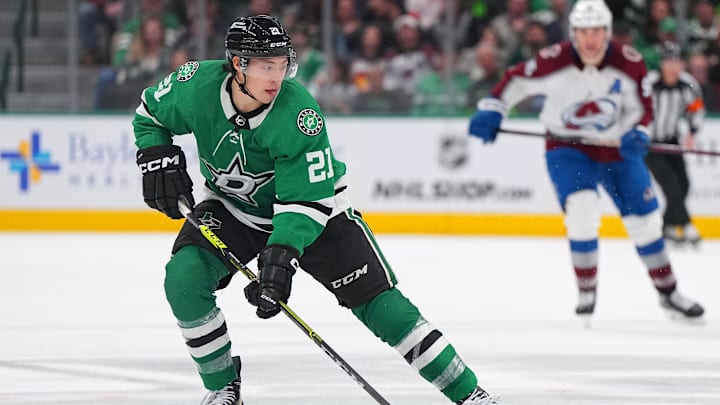After losing to Colorado on Thursday and seeing their star player atop the scoring tally in the league, it’s easy to imagine that the Stars would be better off with a Star player dominating the ice. Fortunately or unfortunately, that’s not how DeBoer coaches and it’s not how Jim Nill has built this team.
The team’s mascot is fitting because the team is truly comprised of star players, leading the league in players with 10+ goals at 7 (with Harley and Dadonov waiting at 9). The team’s success is not hinging on a single player's performance anymore, the effort is evenly distributed amongst all 19.
On the topic of distribution, we’re also seeing power play time divvied up more to allow other talented players more opportunities. Last season we saw Jamie Benn, Jason Robertson, and Joe Pavelski (13 goals apiece) achieve the same output as the second unit combined as Seguin, Marchment, Johnston, Suter, and Lundvkist combined for 13 total goals.
Add Duchene and Harley, subtract Suter and Lundkvist, and now the salty second unit has shrunk the ratio to 17:7 between the 1's and 2's. Better play has earned them more trust and ice time and while Jason Robertson’s stats may suffer, the team succeeds.

The plot twist, however, to this evenly allocated effort was Miro Heiskanen sliding into the post and pinning his knee to the ice beneath the weight of Scott Wedgewood. Miro is the heartbeat of that top unit and one of only two competent power-play quarterbacks on the roster.
Assuming Harley is bumped up to the top unit for the next few weeks while Heiskanen rests, the second unit’s usage will plummet since they’ll go with Suter, who is bad but trusted, or Lundkvist who is good but not trusted. The time to call on other stars to make up for their mega-giant is now and Jason Robertson is the brightest of the bunch.
Aside from opportunity, Robertson’s shooting percentage is also looking to progress back to the mean. Normally, when looking at progression or regression it’s at the expense of an overperforming player but Robo’s 11.4% shot percentage is 2 points lower than his rookie season at 13.4%.
As a career 15.1% shooter, the rebound we’ll see in the second half of the season may result in astronomical numbers. After all, Robo scores almost 80% of his points at even strength and has been the primary focus of opposing defenses through the first 40.
The fun argument I enjoy entertaining was also Paul Bissonnette’s last year on Spittin’ Chiclets, when he implied that missing training camp as part of his mini-holdout allowed him to start the season fully rested. If this is indeed the case, the All-Star break should serve as the slingshot release that the aforementioned situations have built tension with.
More opportunities, heightened focus, and proven talent for the young star will allow him to shine through the 55 games remaining in the 2024 campaign, en route to another cup run. Although, we all know Jason will measure himself with the team’s success after it’s all said and done.

